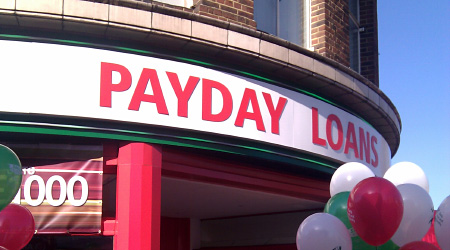Definition Of Short-Term Loan

The definition of short-term loan is normally any type of debt obligation which can be obtained within 24 to 48 hours and has a repayment time of between one week and one month. Short-term loans are not normally recommended because they often come with high interest rates but if a situation arises such as needing to have emergency auto repairs then a short-term loan can be incredibly helpful until your next paycheck at which point the loan can be paid in full.
There are normally two types of short-term loans both unsecured and secured and the difference is important because it could determine whether or not you get a loan and influence the interest rate you wind up paying. Unsecured loans can be slightly more difficult to get if there's no underlying collateral which can be repossessed should the borrower default on the loan. Unsecured short-term loans often have higher interest rates due to the increased risk and may have additional fees and penalties should the loan not be repaid. The more popular secured loans which most consumers are familiar with include payday loans and title loans. Payday loans normally have the requirement of an active checking account as well as a recent pay stub to prove employment. Title loans require ownership of an automobile at which point the title would be used as collateral. Secured short-term loans are sometimes easier to obtain because of the underlying collateral and may have slightly better terms regarding interest-rate and payback period.
Short-term loan can be used for any purpose such as paying rent, buying groceries or putting gas in the car but due to the risk and high interest rates it should only be used in emergency situations. Once you obtain a short-term loan the funds can be directly deposited into your checking account, applied to a debit card or given directly to you as cash. Most short-term loans will not require a background check or credit check especially if they are secured by collateral. But each company is different and may have specific requirements so be prepared to answer questions or provide additional documentation if necessary.
Many short-term loans have received negative press across the nation because of exorbitant interest rates and excessive penalty fees. It is true that if you take out a $500 short-term loan to be repaid within 30 days and the fee for said loan is $75 then annualized interest can be 200% or more. This however is slightly disingenuous because of the $575 is paid back in full within a 2 to 3 week time period and there are no penalties or additional interest then it would be a good deal. The reason why people get in trouble is because financial problems arise preventing them from repaying the loan at which point penalties and interest are added to the principal balance and compounded each month that the loan gets further past-due. This can turn a $500 short-term loan into $1,000 or more in very short order. The consumer however is well aware of the penalties and interest and what could happen if they default on the loan. The lender is legally required to spell out the terms in the loan paperwork when the loan was first issued.
If you are over 18 years old, have steady employment, a valid bank account and are generally speaking financially responsible than a short-term loan may be for you. Be well aware about the terms and conditions of the loan because should you default it can get very expensive very quickly as well as negatively affect your credit rating. Short-term loans are not for the faint of heart and should be taken very seriously but in emergency cases a short-term loan could be a lifesaver to get you over the hump until your next paycheck. As always, read all documentation very carefully and ask questions before signing anything.
Elsewhere on StockMonkeys.com







